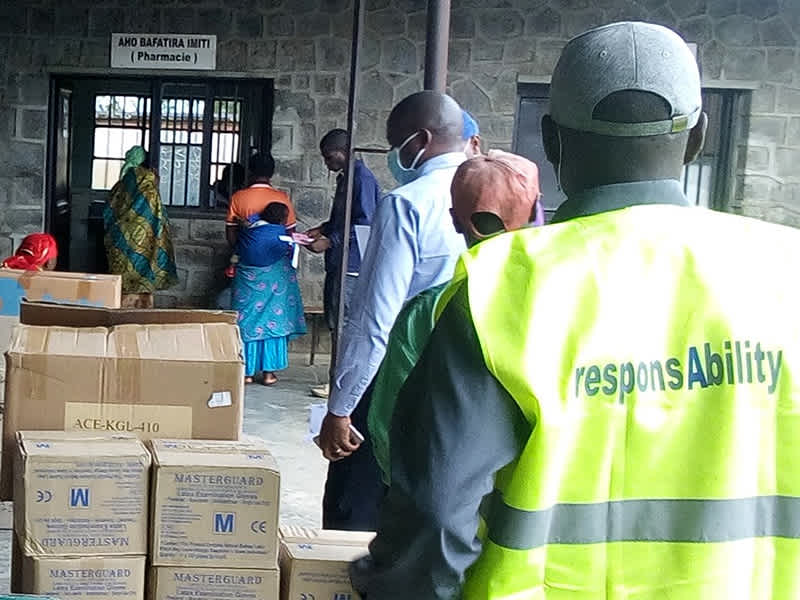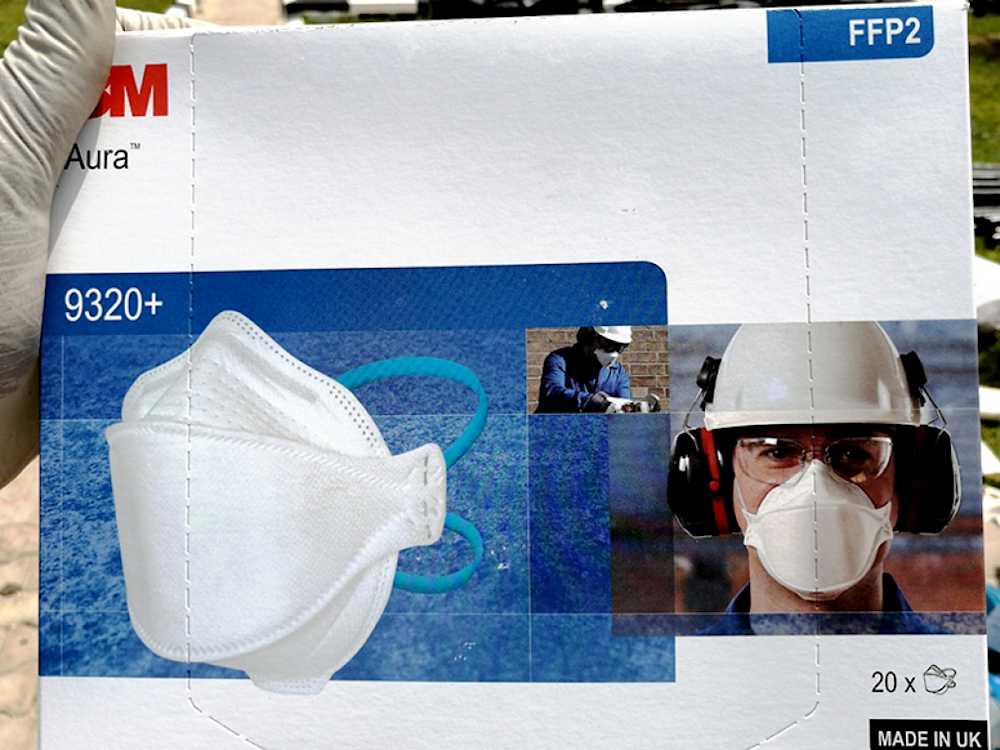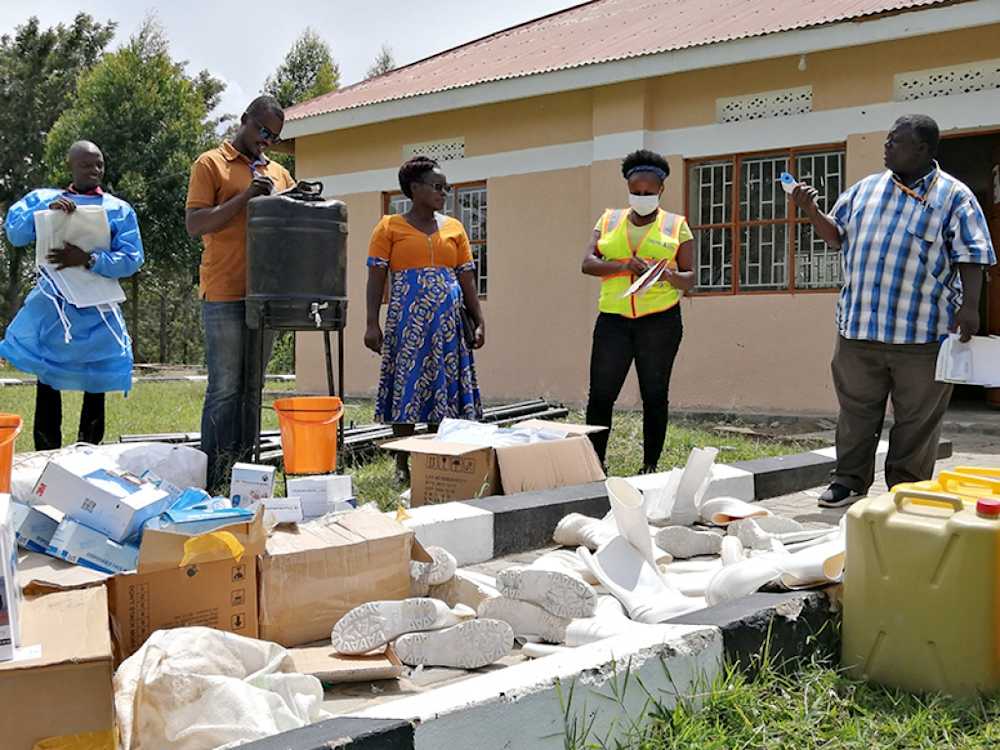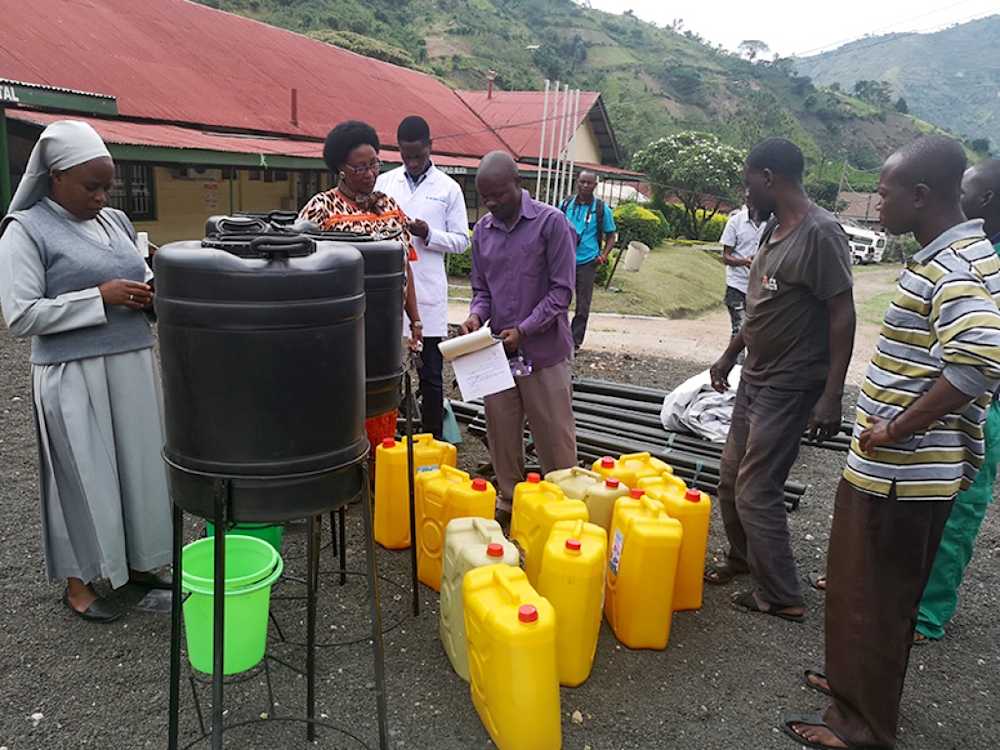Covid-19
Covid-19: Supporting healthcare facilities in Rwanda and Uganda
The current pandemic continues to spread, threatening rural communities across Sub-Saharan Africa who are ill equipped to cope with the effects of Covid-19. responsAbility Renewable Energy Holding has reached out to three healthcare facilities in Rwanda and Uganda that serve the population in the vicinity of its local power plants to help organize and donate much-needed medical supplies.

Safely delivered! Medical equipment sourced and donated by responsAbility Renewable Energy Holding reaches Nyakinama hospital in Rwanda
responsAbility Renewable Energy Holding (rAREH) is operating and building small hydropower plants in rural Rwanda and Uganda, among others. In the process, the team is spending a lot of time with the local communities to ensure that they are involved in and get to benefit from these developments.
With the spread of Covid-19, these communities find themselves in a precarious situation. Healthcare facilities are simply not equipped for emergencies as the ones this pandemic brings. This is why the rAREH team decided to try to offer local communities their support. “By fighting energy poverty in Sub-Saharan Africa, rAREH aims to improve living conditions of local communities”, says Managing Director Joseph Nganga. “With this pandemic threatening our host communities, we couldn’t stand idly by and watch the disaster unfold. We knew we had to do something.”
“With this pandemic threatening our host communities, we couldn’t stand idly by and watch the disaster unfold.”
Joseph Nganga
The rAREH team reached out to its board which immediately showed full support for the initiative. “rAREH was founded for the purpose of improving lives in Sub-Saharan Africa”, explained Tore Horvei, who is an independent rAREH Board Member. “While, even with Covid-19 spreading, rAREH continues to supply much needed energy to 6.9 m people across the continent, at this point it is crucial to ensure local healthcare facilities receive adequate medical supplies to serve the local communities and keep them safe.”
Reaching out to the health facilities
From their work with local communities the rAREH team knew that there are three healthcare facilities, two in Uganda (Kasese and Mpanga) and one in Rwanda (Rwaza Sector, Musanze District) serving areas where rAREH operates and builds power plants. The team reached out to these healthcare facilities and asked whether they needed any material or equipment.
“It turned out that everything needed to treat Covid-19 patients and keep the medical staff safe was in short supply: hygiene handwash, alcohol-based sanitizer, surgical masks, aprons. And, of course, ventilators and tents needed to isolate patients”, explains Maureen Kagende, Community Liaison Officer who is based in Uganda.
Sourcing material from their Nairobi home office
Aware of the urgency of the situation, the rAREH team went into immediate action. “Working out of our home offices in Nairobi, we started to investigate how this equipment could be obtained and, most importantly, delivered to the three facilities in rural Rwanda and Uganda”, explains Lucy Nyoike who supports the rAREH team as Executive Assistant. “We managed to source most of the supplies and arranged to donate them to the hospitals, the exception being ventilators: Demand for this type of equipment far exceeds supplies, and what is available is extremely expensive.”
“At the healthcare facilities serving the communities around our power plants, everything needed to treat Covid-19 patients and keep the medical staff safe was in short supply.”
Maureen Kagende, Community Liaison Officer
With most of the rAREH team based in Kenya, the three healthcare facilities located in Rwanda and Uganda and all three countries in complete lockdown, sourcing material centrally and transporting it across borders wasn’t an option.

Masks are in short supply in rural Africa. With Rwanda and Uganda in lockdown, they had to be locally sourced and delivered
“We had to source everything within the country of destination”, explains Lucy Nyoike. “In Rwanda, we were facing an additional challenge as we were told we could only donate things to the central authorities in Kigali. We, however, wanted to make sure our material reached the local healthcare facility in Rwaza, it took a lot of coordination to bring this about.”
Material safely delivered to hospitals
By 15 April, 2020, 200 l of hand sanitizer, 20 l of liquid soap, 200 re-usable and 2500 disposable face masks, 200 pairs of disposable gloves and 200 pairs of surgical gloves, 100 disposable gowns, 200 aprons, 48 pairs of gum boots, 8 100-l-wash tanks, 10 infrared thermometres and 4 isolation tents seating 50 people each were safely delivered to Kilembe Mines hospital in Kasese District and the healthcare facility in Mpanga, Kitagwenda District, both in Uganda.

15 April 2020: The hospital team at Kitagwenda District, Uganda, takes delivery of face masks, aprons and gum boots, among other items
A delivery with similar items reached Nyakinama hospital in Rwanda’s Rwaza Sector, Musanze District, on 1st May 2020. The local communities have followed local and national government directives to keep safe. There are no reported positive Covid-19 cases so far in these areas.
Paul Ombai, who heads rAREH’s Environmental, Social and Governance (ESG) team, stresses that this isn’t the end of rAREH’s involvement in supporting host communities during Covid-19: “We are closely monitoring the situation in the local communities in all the areas where rAREH has a presence with the intention of implementing similar initiatives as we have in Uganda and Rwanda.”

Medical superintendant Dr. Wefula Edward receives the delivery of medical equipment at Kilembe Mines Hospital in Uganda’s Kasese District